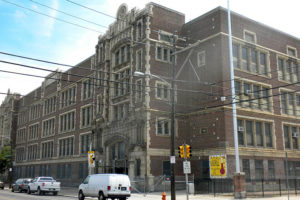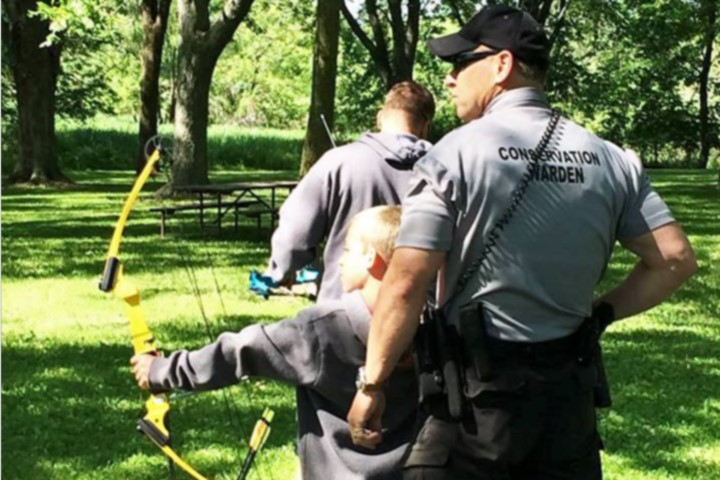Seventh-graders in Reedsburg, Wisconsin are learning what it’s like to leave technology behind to shift focus to nature, community, communication and socialization.


Seventh-graders in Reedsburg, Wisconsin are learning what it’s like to leave technology behind to shift focus to nature, community, communication and socialization.
Throughout the last school year, students from Webb Middle School, St. Peter’s Lutheran School and Sacred Heart School took part in youth conservation days hosted by the Sauk County Conservation, Planning and Zoning Department. The events were held at Devils Lake State Park, as well as River Valley and Sauk Prairie parks, as part of a broader effort involving other districts in the county, the Reedsburg Times-Press reports.
Students spent roughly 25-minutes at nine different stations, where they listened to seminars and played games pertaining to a wide range of conservation topics, from archery to local food chains.
“I know the kids really look forward to it every year so we are excited to be able to host it and put it together for them,” said Melisa Keenan, Sauk County conservationist.
“I hope they realized getting outside and away from electronic devices is a lot of fun and they can learn a lot just by being out in the natural environment,” she said. “I hope they learn a little bit from each session, something they can pass on.”
Reedsburg Future Farmers of America advisor and Agriculture teacher Todd Cherney said the intent of the youth days is to educate students about the outdoors and compel them to protect the environment for future generations.
“It’s hoping that everybody gathers some information and some awareness of our resources and what we have to do to protect them,” he said. “What they have today they sure want their kids and their grand kids to have the same opportunities.”
The appreciation for the natural world grows naturally out of the community conversation and socialization at the events, without the help of digital devices.
It’s part of what researchers at the Institute for Advanced Studies in Culture describe as the “attitudes, behaviors, and strategies” that strongly influence character education.
In The Content of Their Character an analysis of character education work in a wide variety of schools, Institute founder James Davison Hunter wrote that those factors “underpin success in school and at work – capabilities such as self-motivation, perseverance, and self-control, but also empathy, truthfulness, and character more broadly.”
As most schools focus heavily on science, technology, engineering and mathematics, Davison points out that it’s equally important to help students develop soft skills and higher virtues that often determine successful outcomes for people.
“STEM skills are vital to the world in which we live today,” Davison wrote, “but technology alone, as Steve Jobs famously insisted, is not enough.”
The Jubilee Center for Character and Virtues offers a variety of lessons and other materials for educators looking to help students develop soft skills.
One lesson on The Virtue of Truthfulness for example, prompts students to assess their own truthfulness, and to consider why this virtue is important.
“Truthful people grow in virtue much more quickly than for those who struggle to be truthful about who they really are,” according to the lesson. “It is also worth thinking through what human relationships would look like were they to be based on us representing ourselves in a false light: hypocrisy, deceit, lying and the breaking of promises would dissolve social bonds.”